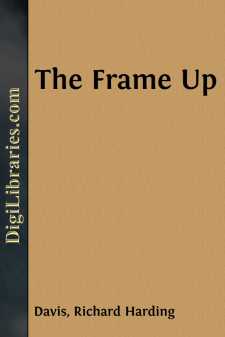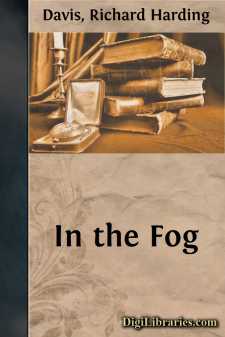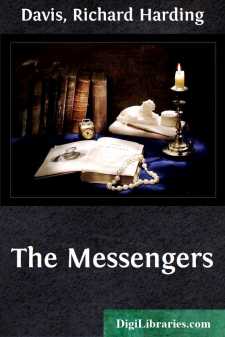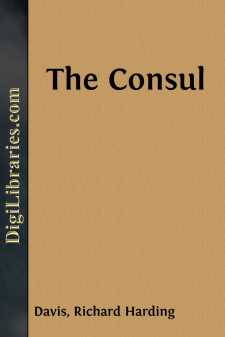Categories
- Antiques & Collectibles 13
- Architecture 36
- Art 48
- Bibles 22
- Biography & Autobiography 813
- Body, Mind & Spirit 142
- Business & Economics 28
- Children's Books 17
- Children's Fiction 14
- Computers 4
- Cooking 94
- Crafts & Hobbies 4
- Drama 346
- Education 46
- Family & Relationships 57
- Fiction 11829
- Games 19
- Gardening 17
- Health & Fitness 34
- History 1377
- House & Home 1
- Humor 147
- Juvenile Fiction 1873
- Juvenile Nonfiction 202
- Language Arts & Disciplines 88
- Law 16
- Literary Collections 686
- Literary Criticism 179
- Mathematics 13
- Medical 41
- Music 40
- Nature 179
- Non-Classifiable 1768
- Performing Arts 7
- Periodicals 1453
- Philosophy 64
- Photography 2
- Poetry 896
- Political Science 203
- Psychology 42
- Reference 154
- Religion 513
- Science 126
- Self-Help 84
- Social Science 81
- Sports & Recreation 34
- Study Aids 3
- Technology & Engineering 59
- Transportation 23
- Travel 463
- True Crime 29
The Frame Up
Description:
Excerpt
When the voice over the telephone promised to name the man who killed Hermann Banf, District Attorney Wharton was up-town lunching at Delmonico's. This was contrary to his custom and a concession to Hamilton Cutler, his distinguished brother-in-law. That gentleman was interested in a State constabulary bill and had asked State Senator Bissell to father it. He had suggested to the senator that, in the legal points involved in the bill, his brother-in-law would undoubtedly be charmed to advise him. So that morning, to talk it over, Bissell had come from Albany and, as he was forced to return the same afternoon, had asked Wharton to lunch with him up-town near the station.
That in public life there breathed a man with soul so dead who, were he offered a chance to serve Hamilton Cutler, would not jump at the chance was outside the experience of the county chairman. And in so judging his fellow men, with the exception of one man, the senator was right. The one man was Hamilton Cutler's brother-in-law.
In the national affairs of his party Hamilton Cutler was one of the four leaders. In two cabinets he had held office. At a foreign court as an ambassador his dinners, of which the diplomatic corps still spoke with emotion, had upheld the dignity of ninety million Americans. He was rich. The history of his family was the history of the State. When the Albany boats drew abreast of the old Cutler mansion on the cast bank of the Hudson the passengers pointed at it with deference. Even when the search lights pointed at it, it was with deference. And on Fifth Avenue, as the "Seeing New York" car passed his town house it slowed respectfully to half speed. When, apparently for no other reason than that she was good and beautiful, he had married the sister of a then unknown up State lawyer, every one felt Hamilton Cutler had made his first mistake. But, like every thing else into which he entered, for him matrimony also was a success. The prettiest girl in Utica showed herself worthy of her distinguished husband. She had given him children as beautiful as herself; as what Washington calls "a cabinet lady" she had kept her name out of the newspapers; as Madame L'Ambassatrice she had put archduchesses at their ease; and after ten years she was an adoring wife, a devoted mother, and a proud woman. Her pride was in believing that for every joy she knew she was indebted entirely to her husband. To owe everything to him, to feel that through him the blessings flowed, was her ideal of happiness.
In this ideal her brother did not share. Her delight in a sense of obligation left him quite cold. No one better than himself knew that his rapid-fire rise in public favor was due to his own exertions, to the fact that he had worked very hard, had been independent, had kept his hands clean, and had worn no man's collar. Other people believed he owed his advancement to his brother-in-law. He knew they believed that, and it hurt him. When, at the annual dinner of the Amen Corner, they burlesqued him as singing to "Ham" Cutler, "You made me what I am to-day, I hope you're satisfied," he found that to laugh with the others was something of an effort. His was a difficult position. He was a party man; he had always worked inside the organization. The fact that whenever he ran for an elective office the reformers indorsed him and the best elements in the opposition parties voted for him did not shake his loyalty to his own people. And to Hamilton Cutler, as one of his party leaders, as one of the bosses of the "invisible government," he was willing to defer. But while he could give allegiance to his party leaders, and from them was willing to receive the rewards of office, from a rich brother-in-law he was not at all willing to accept anything....












